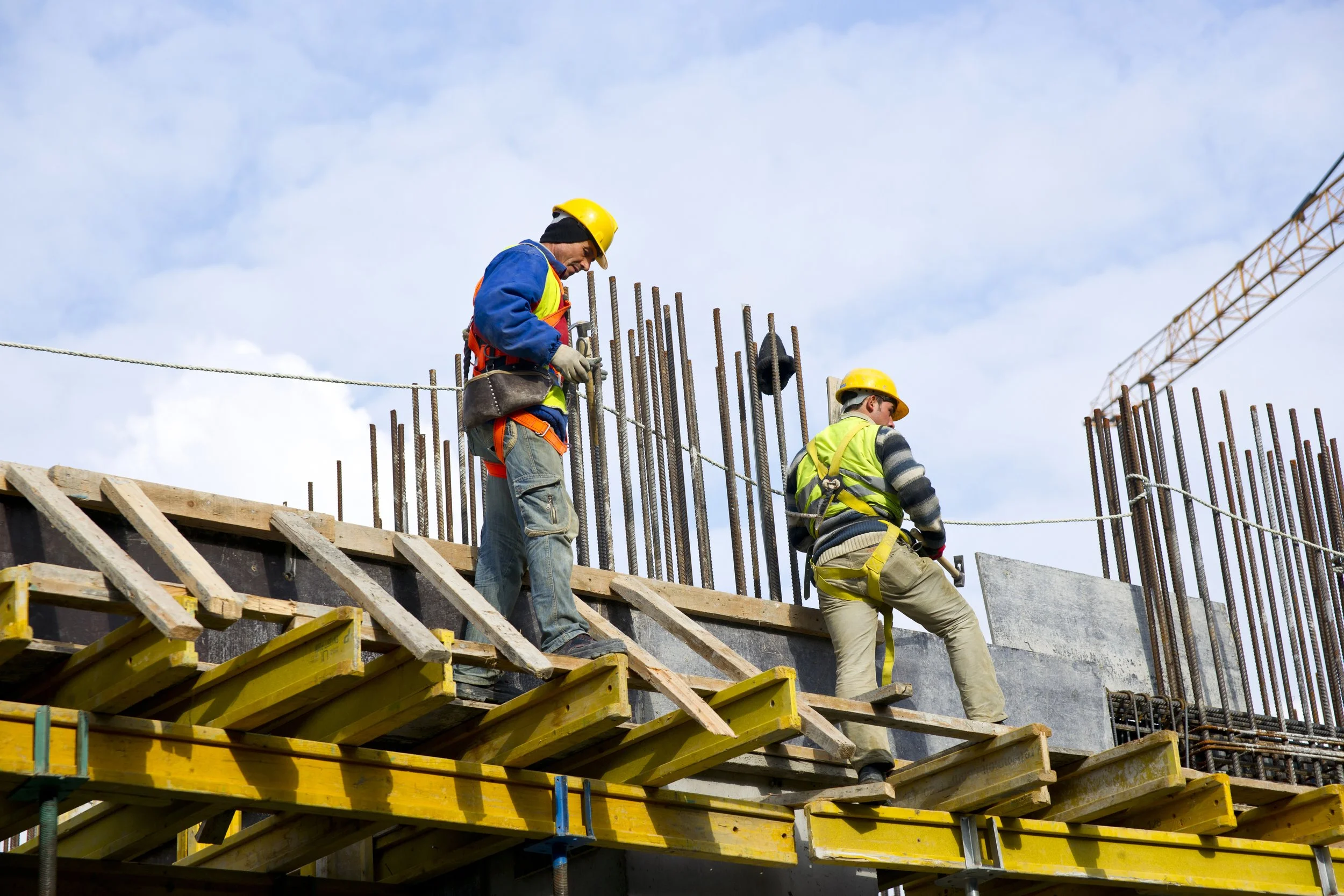Sustainable Home Construction: Eco-Friendly Materials & Techniques
Sustainable building isn’t just a trend — it’s becoming the new standard in modern home construction. More homeowners are realizing that choosing eco-friendly materials and techniques benefits not only the environment but also their long-term comfort, health, and utility costs.
At Nehemiah Construction, while much of our work focuses on smaller commercial projects like tenant build-outs, offices, and light renovations, we also bring our precision and quality craftsmanship to residential projects. Our expertise allows us to guide eco-conscious homeowners through the process of designing and building greener spaces that last.
In this article, we’ll explore the essentials of eco-friendly home construction, from choosing the right materials to implementing energy-efficient systems, so you can make informed choices for your next project.
1. Why Eco-Friendly Construction Matters
Sustainable building isn’t just about reducing your carbon footprint — it’s about building smarter. Eco-conscious design improves indoor air quality, reduces waste, and saves money over time.
Key benefits include:
Lower energy costs thanks to better insulation and efficient systems.
Healthier living spaces with fewer toxins from building materials.
Increased property value due to demand for green-certified homes.
Reduced environmental impact through renewable materials and less waste.
When done right, sustainable construction blends comfort, beauty, and efficiency without compromising on design.
2. Green Insulation: Efficient and Healthy
Insulation is one of the most important components of an energy-efficient home. Traditional fiberglass insulation works, but greener options offer improved performance and fewer environmental drawbacks.
Popular eco-friendly insulation types include:
Cellulose insulation – Made from recycled paper, treated for fire resistance, and highly effective at retaining heat.
Sheep’s wool – Naturally fire-resistant, renewable, and excellent at regulating humidity.
Cotton (denim) insulation – Made from recycled textiles and safe to handle without protective gear.
Spray foam with eco-friendly blowing agents – Offers high R-values and seals small gaps for better efficiency.
A professional home remodeling company like Nehemiah Construction can help determine the best insulation type for your climate and budget.
3. Sustainable Lumber and Alternatives
Wood is a timeless building material, but unsustainable logging can cause significant environmental harm. Choosing certified sustainable lumber or alternatives helps protect forests while still delivering beautiful, durable results.
Options to consider:
FSC-certified lumber – Verified by the Forest Stewardship Council to meet responsible forestry standards.
Reclaimed wood – Salvaged from old buildings, barns, or shipping pallets for a unique, rustic look.
Engineered wood – Uses smaller pieces of wood bonded together for efficiency and reduced waste.
Bamboo – Technically a grass, bamboo is fast-growing, strong, and versatile for flooring or cabinetry.
By sourcing from responsible suppliers, we ensure materials are both beautiful and ethical.
4. Solar-Ready Home Design
You don’t have to install solar panels immediately to benefit from solar preparation. Designing a home to be solar-ready makes future upgrades easier and more cost-effective.
Solar prep techniques include:
Positioning the roof for maximum sun exposure.
Installing conduit for future wiring.
Reinforcing roof structures to hold solar panel weight.
Adding a solar-compatible electrical panel.
Incorporating solar readiness during initial home construction is far more efficient than retrofitting later.
5. Energy-Efficient Windows and Doors
Windows and doors play a huge role in your home’s energy performance. Eco-friendly options keep conditioned air inside and reduce heating or cooling costs.
Look for features like:
Double or triple-pane glass with low-E coatings.
Frames made from sustainably sourced wood, fiberglass, or recycled aluminum.
Proper weatherstripping to prevent drafts.
High-performance windows also enhance comfort by reducing outside noise and maintaining consistent indoor temperatures.
6. Non-Toxic Finishes and Paints
Indoor air quality is often overlooked, but it’s crucial for a healthy home. Many paints, stains, and sealants contain volatile organic compounds (VOCs) that can cause respiratory issues and other health concerns.
Better options include:
Low-VOC or zero-VOC paints.
Natural finishes like beeswax or linseed oil.
Water-based sealants instead of solvent-based ones.
These options are not only healthier but also durable and beautiful — perfect for home renovation and construction projects where wellness is a priority.
7. Water-Saving Fixtures and Systems
Water conservation is another important aspect of sustainable construction. Eco-friendly homes often include:
Low-flow toilets and faucets.
Water-efficient showerheads.
Rainwater harvesting systems for irrigation.
Drought-resistant landscaping.
By reducing water waste, you save money and help preserve vital resources.
8. Certification and Green Standards
For homeowners who want official recognition of their eco-friendly efforts, green building certifications are an excellent option.
Popular certifications include:
LEED (Leadership in Energy and Environmental Design) – A global standard for green building.
ENERGY STAR – Focused on energy efficiency in appliances, windows, and HVAC systems.
National Green Building Standard (NGBS) – Recognizes sustainable residential building practices.
Our team at Nehemiah Construction helps clients meet these certifications, adding credibility and long-term value to their property.
9. Waste Reduction During Construction
Sustainability isn’t just about the finished home — it’s also about how you build it. Reducing waste during construction minimizes landfill impact and cuts costs.
Our waste-reduction strategies include:
Ordering exact material quantities to avoid excess.
Recycling scrap materials like metal, wood, and cardboard.
Donating unused materials to local charities or building programs.
Using modular construction methods when possible.
These small changes add up to significant environmental benefits.
10. Why Choose Nehemiah Construction for Eco-Friendly Projects
With our experience in both commercial and residential building, we bring the same attention to detail, project management skills, and high-quality craftsmanship to sustainable home construction.
Why clients choose us:
Expertise in material sourcing and eco-friendly techniques.
Strong relationships with suppliers offering certified green products.
Transparent cost breakdowns for budget-conscious builds.
Experience in both home construction and home renovation and construction projects.
Whether you’re building from the ground up or upgrading an existing home, our team ensures your project is as sustainable as it is stunning.
Final Thoughts
Eco-friendly home construction isn’t just about being environmentally responsible — it’s about creating healthier, more efficient, and longer-lasting homes. By choosing green insulation, sustainable lumber, solar readiness, and non-toxic finishes, you can build a space that reflects both your values and your vision.
At Nehemiah Construction, we believe every project is an opportunity to make a positive impact — on the environment, your health, and your long-term costs. If you’re ready to start your sustainable building journey, our team is here to guide you every step of the way.
Ready to build smarter?
Visit Nehemiah Construction to learn more about our eco-friendly building solutions and see how we can help bring your vision to life.

